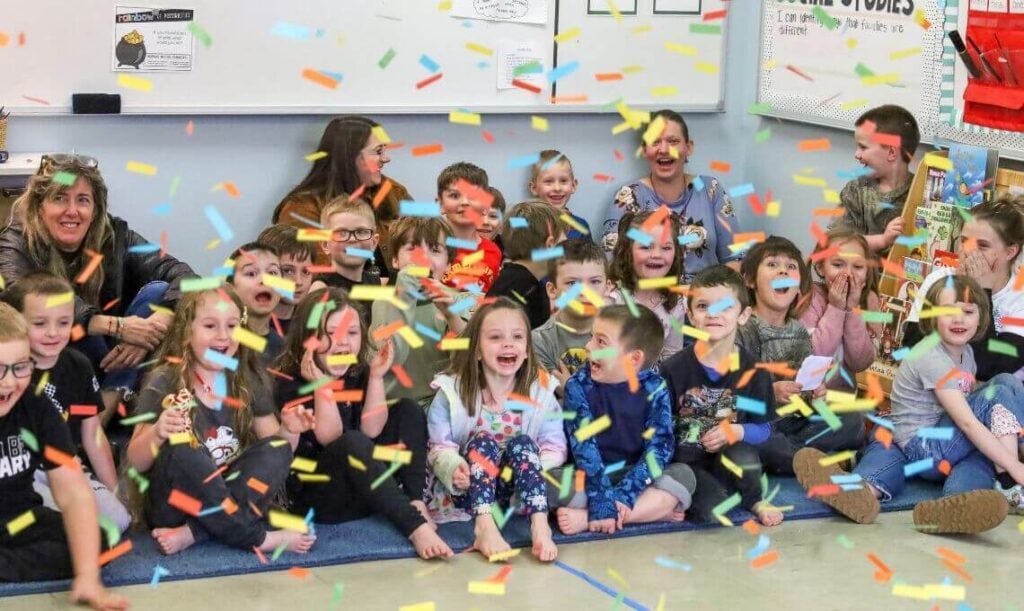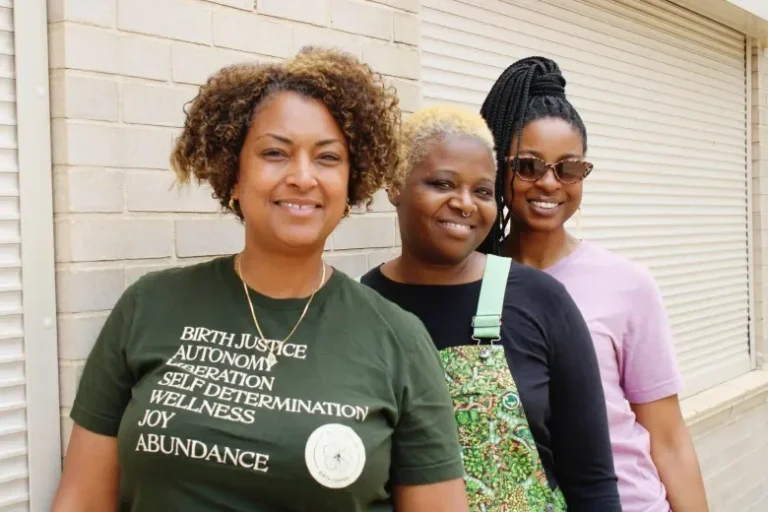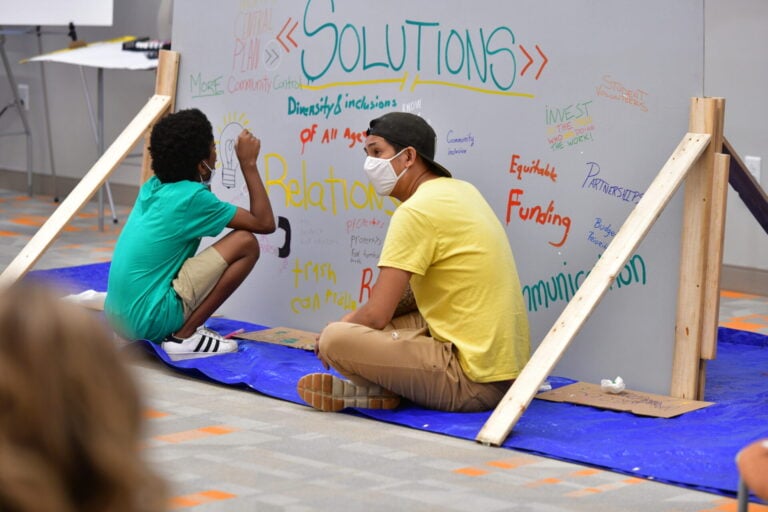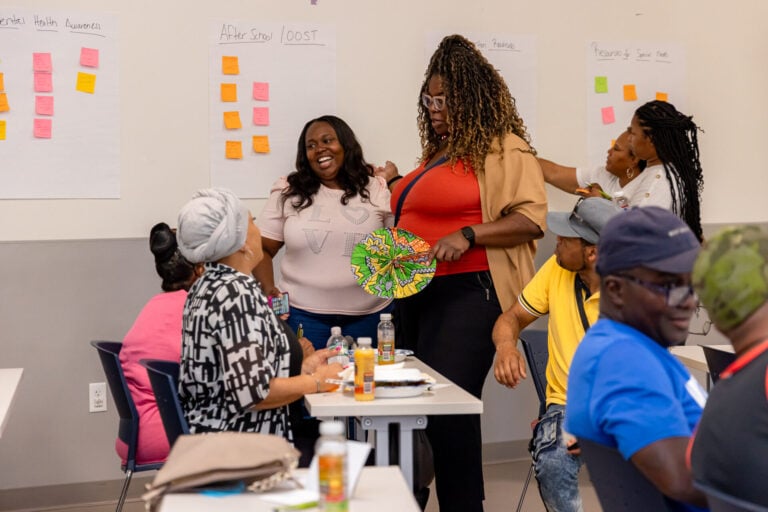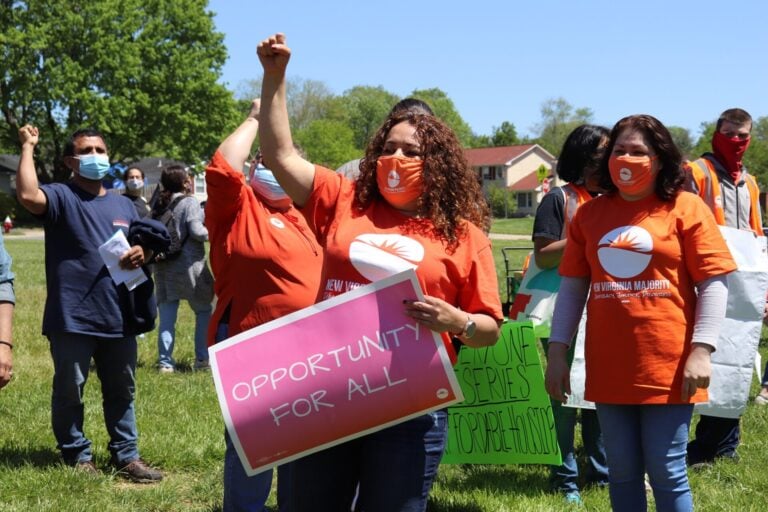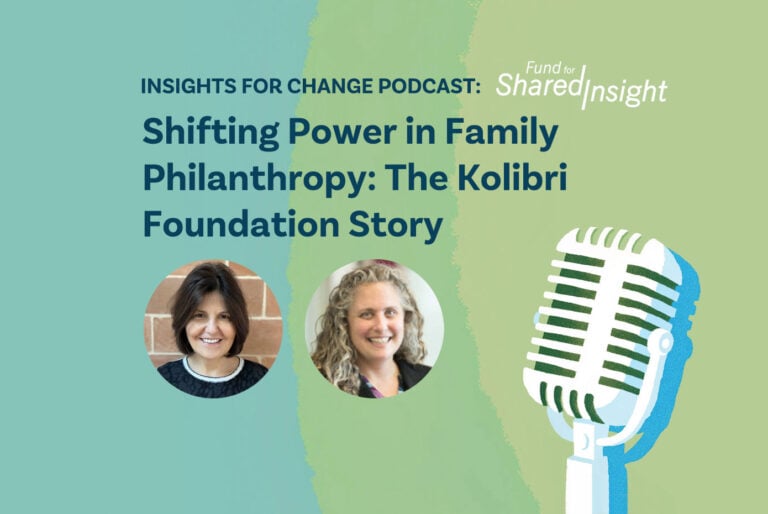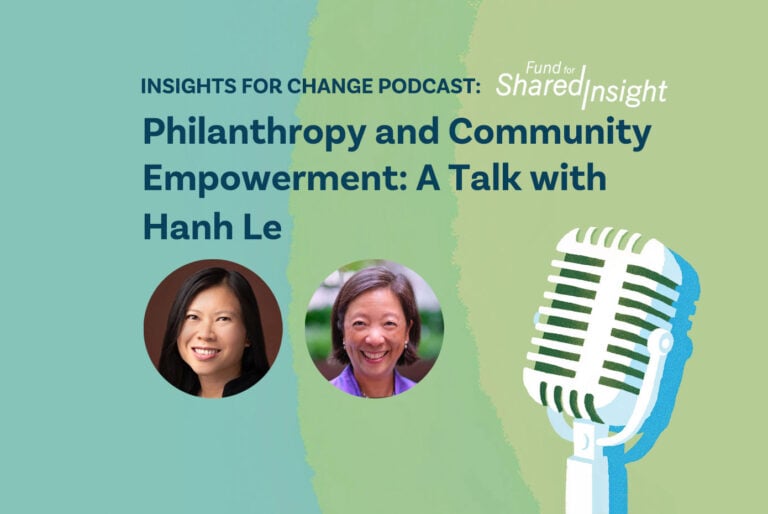At the entrance to the gym of the elementary school in Yoncalla, Oregon, there are bins of children’s shoes, including very small sizes. Community members have bought and donated them so every kid has a pair of clean sneakers to wear for activities while they’re at school. And in Yoncalla, thanks to community leadership that has transformed many aspects of local life, school begins with preschool.
The image of the shoes sticks with Kara Inae Carlisle when she remembers the energy at the school’s annual Dr. Suess night, a community gathering she attended soon after becoming president of The Ford Family Foundation in 2023. In a town of about 1,000 people, it seemed like almost everyone stopped by. Besides activities for families organized by Yoncalla Early Works, the town’s early childhood education program, there was free pizza and free smoke alarms provided by the fire department. It all spoke to how the process of forming Yoncalla Early Works ended up creating much more than a preschool: it created a community hub.
“It’s really revitalized the entire community,” says Carlisle. She notes that it took many years, and a process different from what The Ford Family Foundation expected when it stepped up to help create stronger pathways to kindergarten in Yoncalla. Rather than jump to a solution, like building a new preschool in town, they spent four years supporting relationship-building in the community, creating dialogue to understand barriers around kindergarten readiness, and building trust and muscles for community organizing — a process of dialogue and organizing that has continued.
“If a new preschool was a solution we had prescribed for the community, would families really want to take their kids there? Would the town have rallied?” Carlisle says. “What Yoncalla did, through their own process, was begin to think about what they wanted for their community, what they wanted for their kids, how they wanted the school to operate. And it was beautiful.”
If a new preschool was a solution we had prescribed for the community, would families really want to take their kids there? Would the town have rallied?
Kara Inae Carlisle
A foundation rooted in place
Kenneth W. Ford and Hallie E. Ford were entrepreneurs from the working class who opened a sawmill just south of Roseburg, Oregon, in 1936. The company grew to become Roseburg Lumber, now Roseburg Forest Products, and it is still owned by the Ford family. The Fords began giving to support charitable work focused on youth and families, with the goal of giving back to the people and places that helped them build their wealth. Today, The Ford Family Foundation is the largest private foundation in Oregon, with more than $1 billion in assets.
The foundation is still based in Roseburg, and while its giving has expanded across the state and to Siskiyou County, California, its focus remains on rural communities. It is an unusual commitment — only about 7 percent of philanthropic spending goes to rural communities nationally, although they are home to 14 to 20 percent of the U.S. population and increasingly diverse.
While some conversations can happen virtually, Carlisle notes that there is nothing like showing up in person in a community — to “really touch it, feel it, smell it with people, versus thinking you know it because you read a report.” The foundation maintains a fleet of vehicles for staff to travel around the state. Most foundation team members already live in rural communities, and the foundation also employs some staff, called field coordinators, to live in areas far from Roseburg.
Building those kinds of community ties allows the foundation to directly identify where it might make a difference — such as when a field coordinator in eastern Oregon championed the foundation’s support of a new fire hall for the local volunteer fire department. The fire hall now serves as a community gathering space as well. In a state that broke a record in 2024 for acres burned by wildfires, the idea of combining community centers and fire halls is catching on in many towns.
It was a conversation between neighbors that initiated The Ford Family Foundation’s partnership in support of early-childhood education in Yoncalla. As the principal of Yoncalla Elementary School shared tomatoes with his neighbor, a program officer for The Ford Family Foundation, they talked about how the town was struggling with low test scores among third graders. Part of the problem was children’s lack of readiness coming into kindergarten.
It was a conversation between neighbors that initiated The Ford Family Foundation’s partnership in support of early-childhood education in Yoncalla.
In considering what to do in response, the principal and the program officer brought in another trusted community voice, the town librarian. Early conversations at the library made it clear that parents’ first priority was having safe and fun things to do with their kids. It was four years later, after relationships and trust had been built up and state funding secured, that the group was ready to open a free preschool in 2015. The preschool is fully integrated into the local elementary school, and parents and others in the community provide guidance for the program through an advisory group, Yoncalla Engaged People.
Looking back on what made the early discussions successful, Megan Barber, a Yoncalla Early Works preschool teacher, points to the importance of the organizers seeking out many voices: “Not just certain people in the community, not just the ones we see easily, but from every aspect they can get.”
She and other community members say they also appreciate that The Ford Family Foundation brought in external support throughout the process, including by partnering with the Children’s Institute, a nonprofit doing similar work in an urban setting in Portland, and working with researchers from Portland State University. These outside partners introduced formats to listen and communicate, including the Community Café (based on the World Café method), which prompted participants in those early meetings at the library to discuss questions in a series of small groups and then share insights with everyone.
The Ford Family Foundation is also sharing its learnings around community-level dialogue-building regionally and nationally. It is creating tools to help other rural communities develop their own processes of listening and collaborating to address early-childhood education. And as the chair of the board of Philanthropy for Active Civic Engagement (PACE), Carlisle has helped shape a series of surveys and learning tools for funders seeking to use language around civic engagement that speaks to people’s aspirations in rural communities. The surveys have found that people across demographics view words including “community,” “service,” “belonging,” and “liberty” positively, making them helpful for funders who want to inspire community-led revitalization.
Unexpected benefits
Today, measures of academic success in Yoncalla have improved — kindergarten enrollment has doubled, and kindergarteners’ knowledge of uppercase alphabet letters has more than tripled. But when members of the community assess the success of the program, they often point to nonacademic benefits that came from the process of focusing together, before, during, and after the opening of the preschool, on the many factors affecting early-childhood education: a medical clinic reopened with a full-time family doctor; parent volunteers have helped revive youth sports; and a parent-run care closet at the school gives away toiletries, clothing, backpacks, and bike helmets.
Carlisle recognizes that The Ford Family Foundation could not have created all this alone, or by simply providing funding. “We can’t grant-make our way out of any of these issues,” she says. For every effort the foundation takes on, Carlisle says, “we think about what power we want to hold and what we don’t want to hold,” and where the foundation can build capacity among others, especially by helping to activate the sometimes “invisible capital” within communities.
When she thinks about the listening and humility she believes philanthropy needs to do its best work, Carlisle leans on an idea from liberation pedagogy: “When you walk as a newcomer into any place or are invited to collaborate, just know that there’s a dance that people in that community are dancing that you might not be able to recognize yet. Over time, and if you’re lucky, they’ll invite you to join the dance for a while.”
